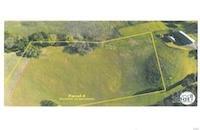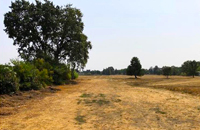A Complex Process
Although the basic steps of purchasing a country property are the same as when purchasing a house on a city lot – offer, negotiation, contract, disclosure, inspections, release, funding and close – each step is quite different for country and vineyard property and the time frames overall are usually much longer.
Offer
It is often much, much more difficult to arrive at a fair market value for a country property than for a house on a city lot. There are usually few comparables and the available comparables usually require significant adjustment to match the subject property. In addition, there are usually several aspects of the property which are critically important to its value which you will only be able to make broad assumptions about based on the seller’s representations. What are the issues that are important to look at when considering the purchase of a country or vineyard property – They are laid out here in Evaluating Properties.
Making an offer with such a lack of hard information can be disconcerting to say the least and often just plain nerve wracking and for some buyers it is a hurdle they can’t overcome.
Offers on country property also differ significantly from typical residential offers in that they usually include a long list of contingencies reflecting the list of issues to be resolved and often also imply significant cost (often to the buyer, but sometimes shared with the seller).
Initial Negotiations
Price in country and vineyard properties is always a big point of negotiations. It is not uncommon for buyer and seller to start $100,000 to $500,000 apart – sums that would seem unreasonable in typical residential transaction. But in addition to the vast “money gap” that needs to be overcome, there are usually one or two major other negotiating points that turn out to be as important as $$$. The two that come to mind right away are any existing crop on a vineyard and often occupancy – or when the buyer can occupy. But to be honest, there always seems to be a new issue with every escrow.
And, you would think that when you are dealing with such expensive and complex properties that the participants would be quick to respond, but that has not been our experience. Offers and Counters are usually written with 24 or 48 hour response times, but people often just ignore those times and it is not unusual to see 1 to 2 weeks taken to respond. I believe that reflects the enormity of the transaction to most people and their need to fully consider each step and it also often reflects the fact that there are often multiple owners who have to be consulted.
It is not uncommon to go back and forth 3, 4, 5 or even 6 times. People are often ready to give up from the stress of it just as I think we are about to come to a “meeting of the minds”.
Time Frames
Time frames in country and vineyard properties are usually much longer than for typical residential transactions as you would expect. Instead of 10 to 20 days for inspections we often write 30 to 45 days on country properties and sometimes longer. And closing dates are usually 60 to 90 days from the day of acceptance. And we often see these dates extended as inspections run into one snag or another.
Contract
Once the sellers accept the buyers offer (or vice versa depending on who made the last “counter”), buyers and sellers usually heave a sigh of collective relief. But the negotiations are usually far from done. But at least at this point each side has a few days of relaxation.
At this point the buyers must put up their initial deposit as well. Usually a fixed amount of $5,000 to $20,000 depending on the price of the property.
Disclosure
Soon after acceptance – usually 3 days – the seller delivers to the buyers the standard disclosures and disclaimers. If you haven’t been involved in a real estate transaction recently, you will be amazed by the number of pages is involved. By law, sellers must disclose any fact they are aware of that materially affects the property in any way. Including facts not pertaining directly to the property such as nuisance neighbors, nearby hazards or governmental restrictions.
So the first real glimpse the buyer gets of what the seller knows is the disclosure documents. Buyers are often excited about the wealth of information they expect to be in these documents, but they are almost always disappointed.
Inspection Period
The next several weeks are usually spent performing all the inspections laid out in the contract. Well, septic, soil, the county, building, etc. Each inspection will cost money – usually the buyers – and will reveal some vital piece of information. Some – like visiting the county – are free. Based on what is found, the buyer can assess two things – the suitability of the property for his or her needs and the actual value of the property versus the value of the property assumed during initial negotiations. Things like the number of bedrooms of the septic site, location of legal buildings site and the number of plantable acres are prime examples of this.
If the property proves unsuitable for any reason, the buyers can cancel the contract without penalty and have their deposit returned.
Further negotiations
So now another round of negotiations may begin. To the extent that the buyers feel the actual value of the property is less than assumed during negotiations they can now ask the seller to reduce the purchase price or otherwise compromise on their end of the contract. The seller is under no obligation to comply with the request, but they cannot terminate the contract either. Only the buyer can terminate the contract at this point. So 3 to 6 weeks into escrow the parties once again go back to the negotiating table. If the buyer is not happy with the result, they can terminate the contract and get their deposit back.
This is the most painful point in most country property negotiations. The buyers already feel they are paying too much and the sellers feel they are ‘giving’ the property away. Each feels the other needs to give significantly to make the deal work.
Release of contingencies
If the buyer backs out , the seller may have the right to claim the buyers deposit or a percentage there of per the liquidated damages clause in the purchase contract.. Or they can release all but a few still to be figured out contingencies and increase their deposit. The increase at this point is usually to a total of 3% of the contract price. It is important to note that if the offer was made and accepted “contingent” on a loan, at this point the “loan contingency” is usually removed here as well. After this point, if the buyer backs out, the seller may claim the deposit as his or her.
As a side note, the concept of a “non refundable deposit” is almost completely out of use in California and our attorneys will not even let us write a contract that contains one – mostly because they aren’t valid and cause huge amounts of trouble.
Funding
From the point that contingencies are released to the close of escrow the property moves to a more stable state of “pending”. At this point all we are waiting for is the money to arrive at the title company. Once that happens, the escrow can be closed and recorded.
Close and Occupancy
Closing – the act of transferring the money and recording the new owner with the County, usually is done the same day. But, the question of when the buyers can occupy is more complicated in a country property. Sellers often have good reasons to need to stay beyond the close of escrow, and hopefully that was all worked out in the initial negotiations. Typically, sellers staying beyond the close of escrow will pay rent, but that is up for negotiation as well. It is very, very rare for buyers to take possession prior to the close of escrow as the issue of tenancy if the escrow falls through can be very difficult.











